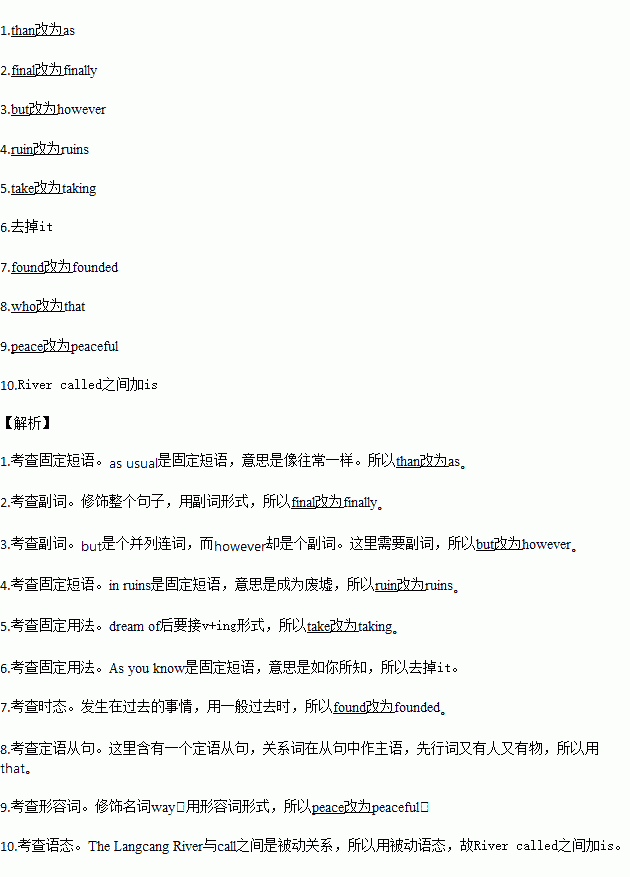题目内容
每个句子只有一处错误。错误仅涉及一个单词的增加、删除或修改。
增加:在缺词处加一个漏字符号( ),并在其下面写出该加的词。
),并在其下面写出该加的词。
删除:把多余的词用(\)划掉。
修改:在错的词下画一横线,并在该词下面写出修改后的词。
注意:每处错误及其修改均仅限一词;
1.Wang Wei rode in front of me than usual.
2.We final got the chance to take a bike trip.
3.No wind, but, could blow them away.
4.In the earthquake, a large city lay in ruin.
5.Wang Wei has dreamed of take a great bike trip.
6.As you know it, the quake happened forty years ago.
7.Sun Yat-sen found the first Republic in China in 1911.
8.I saw a car and many people who were in front of the hill.
9.He fought for his country to be free from the UK in a peace way.
10.The Langcang River called the Mekong River in the other countries.
练习册系列答案
 手拉手全优练考卷系列答案
手拉手全优练考卷系列答案
相关题目

